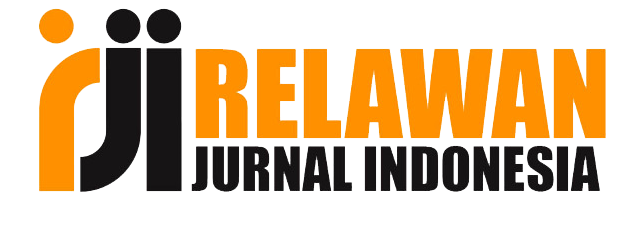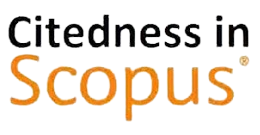A reflective study on Indonesian English teacher's expectation from teacher forum for professional development
DOI:
https://doi.org/10.33474/j-reall.v1i1.6116Keywords:
academic forum, professional development, reflection, ELT best practicesAbstract
Teacher professional development is an ongoing process. Standing on the frontline in implementing educational policies, teachers are encouraged to actualize both theoretically, policies, and practices. One way to improve the professionalism of a teacher is reflection through an academic forum so as to enrich the inquiry obtained in order to improve individual professionalism. This is an ongoing research involving English teachers in East Java members of the ELT Best Practices academic forum. The goal is to elaborate two basic things, namely the motivation of teachers in their involvement in academic forums and how academic forums can help them in conducting self-reflection in order to increase professionalism. Almost all teachers say that increasing professionalism as an English teacher is the main motivation. In detail, several aspects that are the focus of improvement are language skills, teaching techniques, the renewal of language teaching theories, and increasing networking among English teacher professions. With diverse backgrounds ranging from English teachers in middle and high school (or similar), the academic forum is considered important to help the teachers upgrade their knowledge and professionalism.
References
Bruinsma, M. & Jansen, E. P.W.A. (2010) Is the motivation to become a teacher related to pre‐service teachers’ intentions to remain in the profession?, European Journal of Teacher Education, 33:2, 185-200, DOI: 10.1080/02619760903512927.
Butcher, J. (2010). A Case for Mentor Challenge? The Problem of Learning to Teach Post-16, Mentoring and Tutoring 10(3), DOI: 10.1080/1361126022000037042.
Can, M. (2009). Post-Method Pedagogy: Teacher Growth behind Walls, Conference: The 10th METU ELT Convention, December 2009.
Delaney, Y.A. (2012). Research on Mentoring Language Teachers: Its Role in Language Education, Foreign Language Annals 45(s1), DOI: 10.1111/j.1944-9720.2011.01185.x.
Farrell, T.S.C. (2012). Reflecting on Reflective Practice: (Re)Visiting Dewey and Schön. TESOL Journal, Volume 3, Issue 1, 7-16. https://doi.org/10.1002/tesj.10
Halai, A. (2006). Mentoring in-service teachers: Issues of role diversity, Teaching and Teacher Education 22(6):700-710, DOI: 10.1016/j.tate.2006.03.007.
Kumaravadivelu, B. (2006). Understanding language teaching: From method to postmethod. Mahwah, NJ: Lawrence Erlbaum.
Lie, A. (2007). Education policy and EFL curriculum in Indonesia: between the commitment to competence and the quest for high scores. TEFLIN Journal. Vol. 18(1), 1-4. DOI: http://dx.doi.org/10.15639/teflinjournal.v18i1/1-15
Liu, K. (2015). Critical reflection as a framework for transformative learning in teacher education. Educational Review 67(2), 135-157. https://doi.org/10.1080/00131911.2013.839546
Marwan, A. (2017). ESP Teaching Challenges in an Indonesian Vocational Higher Institution. The English Teacher, Vol. XXXVIII: 1-12.
McCabe, A., Gledhill, C., & Liu, X. (2015). Systemic Functional Linguistics and English Language Teaching, TESOL International Journal, Volume 10 Issue 1, pp. 1-10.
Mertens, D.M. 2010. Research and Evaluation in Education and Psychology: Integrating Diversity with Quantitative, Qualitative, and Mixed Methods. Los Angeles: SAGE Publications, Inc.
Mulyasa, E. (2007). Standar Kompetensi dan Sertifikasi Guru. Bandung: PT. Remaja Rosdakarya.
Nguyen, H.T.M. (2017). Models of Mentoring in Language Teacher Education. Switzerland: Springer, Cham. https://doi.org/10.1007/978-3-319-44151-1.
Richard, J.C. & Farrel, T.S.C. (2005). Professional Development for Language Teachers: Strategies for Teacher Learning. Cambridge: Cambridge University Press.
Widodo H.P. (2016) Teaching English for Specific Purposes (ESP): English for Vocational Purposes (EVP). In: Renandya W., Widodo H. (eds) English Language Teaching Today. English Language Education, vol. 5. Springer, Cham.
Widodo, H. P. (2015). Engaging Students in Literature Circles: Vocational English Reading Programs. The Asia-Pacific Education Researcher 25(2), DOI: 10.1007/s40299-015-0269-7
Yost, D. S. (2006). Reflection and self-efficacy: Enhancing the retention of qualified teachers from a teacher education perspective. Teacher Education Quarterly, 33(4), 59-74.
Zulfikar, T. (2009). The making of Indonesian education: an overview on empowering Indonesian teachers. Journal of Indonesian Social Sciences and Humanities. Vol. 2, 13-39. DOI: 10.14203/jissh.v2i0.19.
Downloads
Published
How to Cite
Issue
Section
License
Copyright (c) 2020 Sueb Sueb, Ririn Pusparini, Anis Trisusana, Esti Kurniasih, Nur Chakim

This work is licensed under a Creative Commons Attribution 4.0 International License.
Authors who publish this journal agree to the following terms:
- Authors retain copyright and grant the journal right of first publication with the work simultaneously licensed under a Creative Commons Attribution License that allows others to share the work with an acknowledgement of the work's authorship and initial publication in this journal.
- Authors can separately make additional contractual arrangements for non-exclusive distribution published by the journal (e.g., publish it in a book), with an acknowledgement of its initial publication in this journal.
- Authors are allowed and encouraged to send their work via online (e.g., in the institutional repositories or their website) after published by the journal.






















